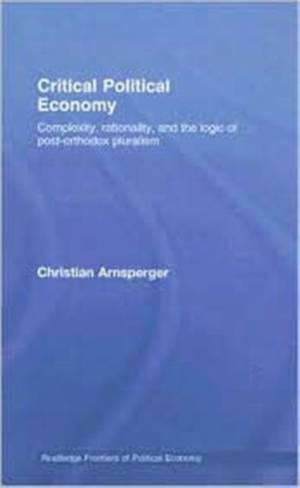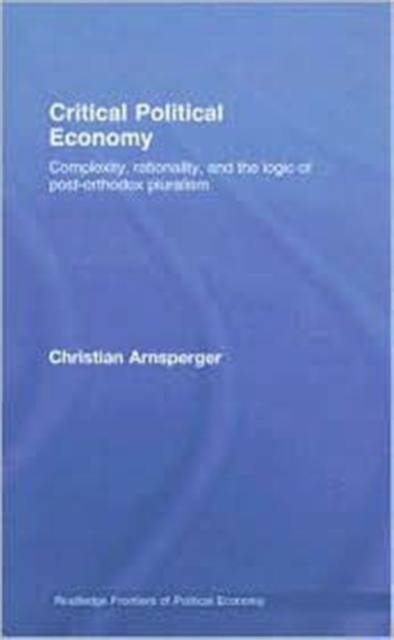
- Retrait gratuit dans votre magasin Club
- 7.000.000 titres dans notre catalogue
- Payer en toute sécurité
- Toujours un magasin près de chez vous
- Retrait gratuit dans votre magasin Club
- 7.000.0000 titres dans notre catalogue
- Payer en toute sécurité
- Toujours un magasin près de chez vous
Critical Political Economy
Complexity, Rationality, and the Logic of Post-Orthodox Pluralism
Christian Arnsperger
305,45 €
+ 610 points
Format
Description
This bold and ambitious book attempts to diagnose and remedy what is wrong with economics, so that it can become an emancipatory form of knowledge. It will be of interest to serious economists and philosophers of social science everywhere.
Spécifications
Parties prenantes
- Auteur(s) :
- Editeur:
Contenu
- Nombre de pages :
- 352
- Langue:
- Anglais
- Collection :
Caractéristiques
- EAN:
- 9780415446303
- Date de parution :
- 01-02-08
- Format:
- Livre relié
- Format numérique:
- Genaaid
- Dimensions :
- 164 mm x 234 mm
- Poids :
- 653 g

Les avis
Nous publions uniquement les avis qui respectent les conditions requises. Consultez nos conditions pour les avis.






